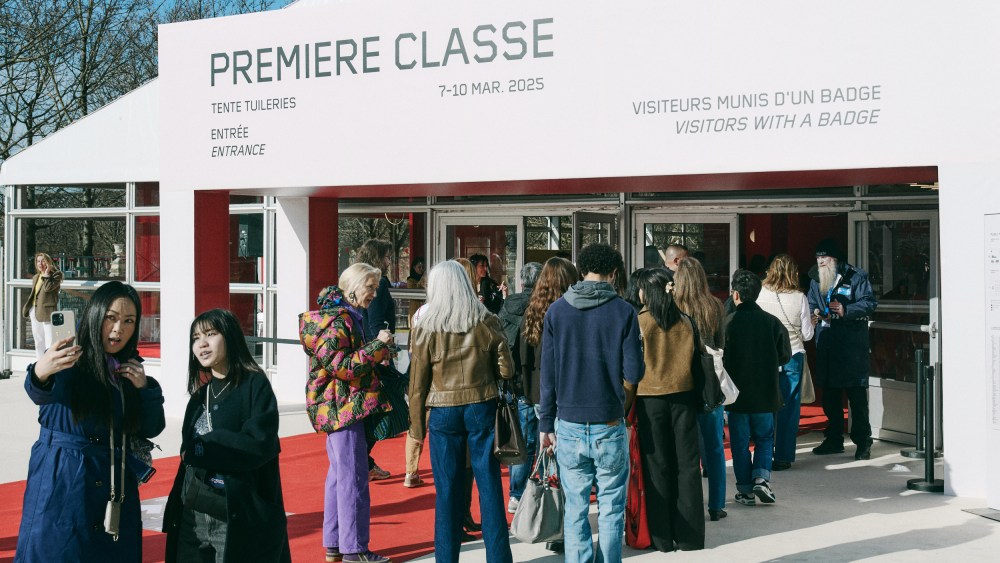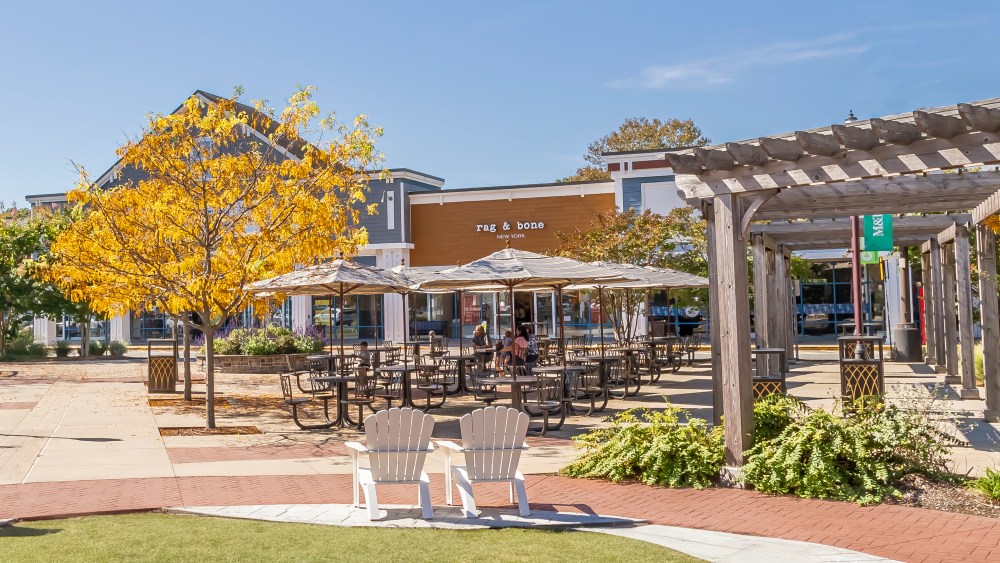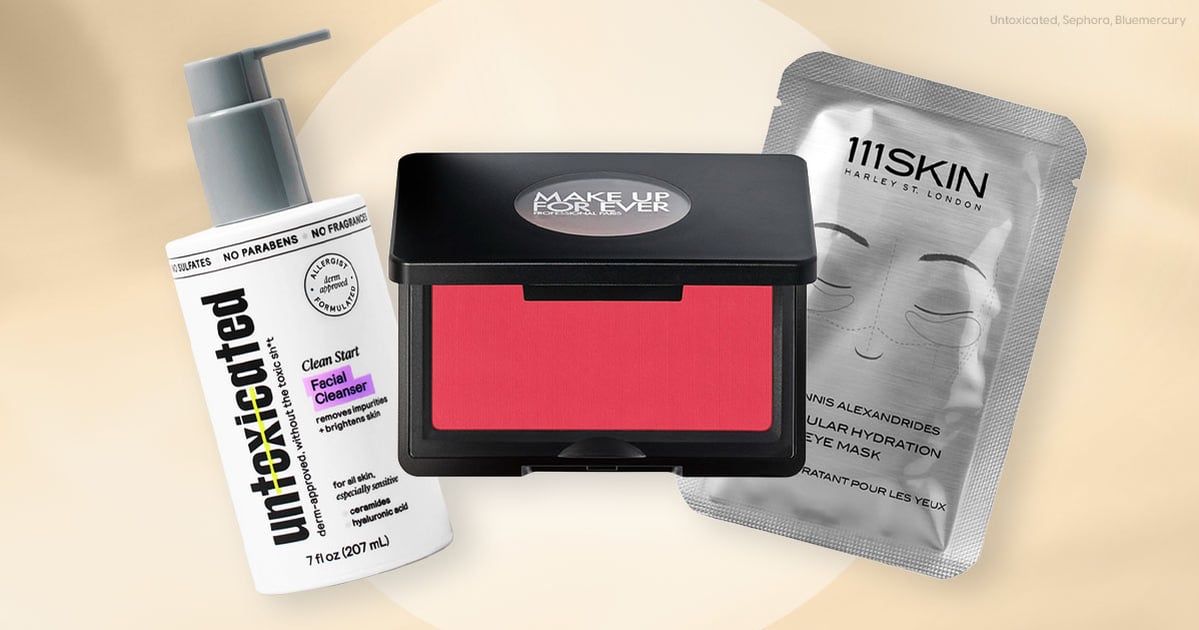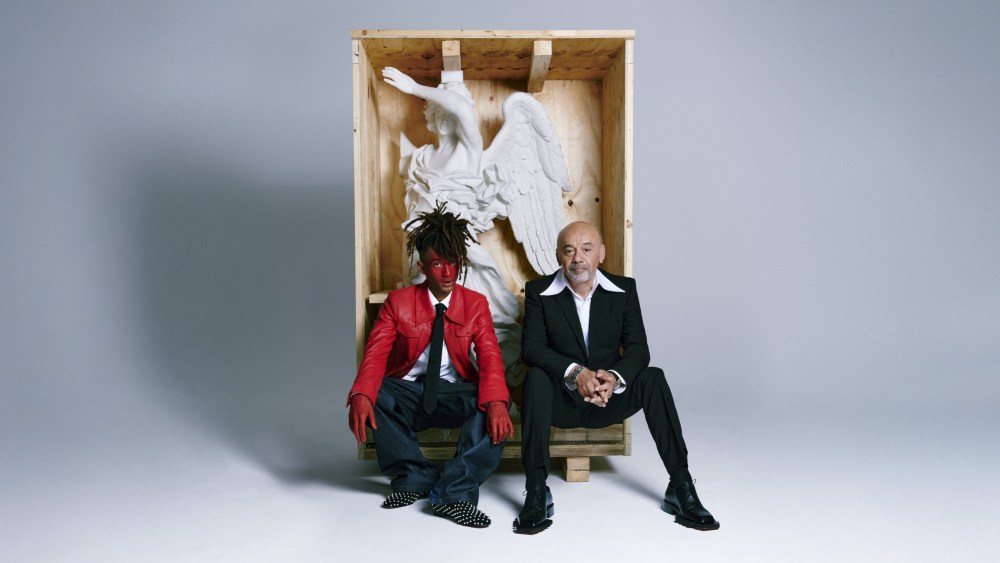PARIS — With high-end retail in turmoil and luxury in the doldrums, times are tough for the smaller fashion and accessories brands that make up the bulk of exhibitors at Première Classe, Tranoï and Woman, which ran over the weekend during Paris Fashion Week.
Major buyers in town are increasingly sitting out the trade shows, and several exhibitors said there is pressure to show during men’s and pre-collections in January, rather than in March, when most retailers have allocated the bulk of their budgets for the season. An additional downer was the threat of so-called “Trump tariffs” and what they mean for brands and retailers.
Christina Rothmann Johansen, of Gazata boutique in Copenhagen, said her consumers at the moment were reluctant to spend. “They’re looking for more safe pieces, but we want to challenge them,” she said. Shopping at Première Classe, she commented, “Since this show is so late in the season, we save a little budget for the special pieces here.”
You May Also Like
“A lot of women’s buyers are asking us to move shows to January,” confirmed John Webb of Great Highway Showroom, representing Handvaerk and Chimala at Woman. “Here, people are saying that if they have money left, they will make a firm order. People are hesitant.”
Woman, with an expanded offer of around 40 brands, took place at a new venue east of République. “Women’s has been a bit complicated this season,” Man/Woman cofounder Antoine Floch said. “It’s been quite calm, but with good buyers coming through. Our January show during men’s was packed, so it seems like the confirmation that a lot of buyers, even for women’s, prefer to buy during men’s collections in January.”
Over at Tranoï, at the Bourse, South African designer David Tlale, who has been presenting through the Canex initiative for African brands for a number of seasons, commented, “It’s the slowest I’ve ever seen it. Retail has been really difficult for the past seven or eight months, and big retail brands are slashing outlets. What we’re seeing here at the trade shows is a ripple effect of what’s happening on the market.”
Beth Bogulski, a retail veteran who opened the Millie + Madge boutique in Woodstock, N.Y. last year, said her customers are looking either for special pieces with a story or timeless classics, but that business so far had been good. “For me and my customer, it’s about something unusual or an elevated basic, I’m looking for quality and versatility,” she said. “My customer may not be buying as much, so it has to be special and unique.”
The threat of tariffs was at the heart of many conversations, making both brands and buyers nervy. At Tranoï, chief executive officer Boris Provost said he had seen an uptick in interest in participating in future editions from labels in Canada and Latin America, for instance, who are aiming to anticipate potential lost business in the U.S. “For some brands, the U.S. is their biggest market, and they are looking for potential new business,” he said.
Anna Palubicka, cofounder and designer for Polish jewelry label 10 Decoart, who showed at Tranoï, said that while the collection had seen interest from American buyers, they were reluctant to place orders. “They have the wholesale price, but they don’t know how much they will ultimately pay. We can’t raise our prices by 25 percent,” she said. The U.S. has historically been a big market for the colorful brand. “We are focusing on Asia right now, and we will see what happens,” said Palubicka.
“[Tariffs have] been the topic of almost every conversation we’ve had,” said a representative for one American brand showing at Tranoï. “Everyone is worried about how much prices are going to rise. It would definitely impact someone taking a risk on a new brand.”
While exhibitors reported that traffic was slow, Tranoï’s organizers were doubling down on new initiatives, including the next edition of Tranoï Tokyo, which debuted last year and has been successful, according to Provost, as well as a pop-up at Galeries Lafayette in June that will see several African designers from the show’s Canex partnership showcasing their designs.
At Première Classe, which saw a 12 percent uptick in visitor numbers year-over-year and benefited from cross traffic with design event Matter and Shape next door, WSN CEO Frédéric Maus said he had not witnessed a downturn in American buyers attending, and that he remains optimistic for the business context for the U.S. “There is a risk for brands, and they need to ask themselves do they put up their prices or eat into their margins, but there is demand on the market,” he said. “When the product is right, and positioned at the right price, which is the case for the majority of our offer, it sells well.”
Nevertheless, the offer at Première Classe was reduced by around a third this season, with around 250 brands showing. “Première Classe is an indispensable show on the fashion calendar, but needed to hone its selection,” said Maus. “We wanted to refocus on accessories, which are the pure DNA of Première Classe, alongside a highly edited selection of ready-to-wear.”
Here are some highlights from the offer at Première Classe, Tranoï and Woman:

La Caterina
Showing at: Première Classe
Category: Jewelry
Repurposing vintage spoons and beads into contemporary jewelry silhouettes with other components sourced from deadstock, Ecole Duperré graduate Olivia Simorré created her fully upcycled jewelry label four years ago, and was exhibiting for the first time. Each piece is made by hand and features a giant label detailing the history of the elements used in its creation.
Wholesale prices: Core line from 80 euros to 250 euros; one-off pieces around 300 euros.

Diane
Showing at: Première Classe
Category: Eveningwear
Diane Cabasse, a graduate of the Chambre Syndicale, worked with brands including Leonard Paris and Dress Gallery before creating her own label in 2020. Her voluminous silhouettes are made from colorful silk crêpe or tulle, either sourced in Europe or from Nonasource deadstock, and the designs are all made in France. “I wanted to recreate attachment to garments, like back in the day when you would buy couture pieces that you would pass down to your daughter,” she explained. Bestsellers include a bright, full-skirted tea dress with a sweetheart neckline and puffy sleeves, and there were also more contemporary pieces like a satin crop top with pearl adornments.
Retail prices: 275 euros to 1,300 euros

Christine Phung
Showing at: Première Classe
Category: Ready-to-wear and accessories
Former Leonard Paris designer Christine Phung relaunched her eponymous label 18 months ago, with ready-to-wear and accessories. Inspired by “archetypes,” she said, fashion pieces take the humble shirt as their starting point, which Phung works like a canvas, with abstract arty prints on Nonasource fabrics. Her bags, meanwhile, are made from upcycled leather scraps and included a graphic shape done in an electric blue patent finish.
Wholesale prices: Shirts from 150 euros to 180 euros; large bag 230 euros.

Düttmann Design
Showing at: Première Classe
Category: Accessories
Hailing from Germany, Janina Düttmann cut her teeth at Chloé and Iris van Herpen before recently launching her own label with a single product that is part belt, part sculpture. “I wanted to start small but extravagant,” the first-time exhibitor explained. Produced in Italy from calfskin leather, the asymmetric design is laser-cut and sewn by hand, and is available in black, tan or magnetic blue. Next up, Düttmann plans to create a small collection of minimalist apparel intended to be paired with the belt. “My ambition is to create less pieces, but really well. Its an approach that goes against mass production. People are already buying less, which is what we should be teaching the customer,” she believes.
Retail price: 850 euros

Studio Caro
Showing at: Première Classe
Category: Accessories
Another designer focusing on slow fashion was Caro-Liine Tikk, founder of Caro Studio, a leather goods expert who previously worked at Bally. “My intention is to create an iconic design for each product category,” she explained, starting with what she described as “the new heritage handbag,” with a graphic, instantly recognizable shape crafted from high-end deadstock leather. Her next product, a cap, which launches in April.
Retail prices: From 1,900 euros to 3,200 euros

Mathilde Hiron
Showing at: Tranoï
Category: Accessories and ready-to-wear
Mathilde Hiron, a finalist for the 2023 Hyères Prize, creates designs that are a hybrid of art and fashion she defines as “wearable sculptures.” Colorful ceramics in organic shapes are set alongside handwoven accessories made from deadstock fabric scraps. At Tranoï, she showcased her first rtw pieces that are designed to be comfortable and easy to wear for a diversity of body shapes, while tying in with the vibrant universe she has defined with her accessories.
Retail prices: 80 euros to 2,000 euros

Annele
Showing at: Tranoï
Category: Jewelry
Iina Annele Rantala takes inspiration from the natural environment of her homeland, Finland, to create playful silver- and gold-plated pieces featuring glass beads and Swarovski crystals, often evoking fruit or flowers. She founded the brand five years ago, has a strong online presence and two stores in Finland, and is now opening up to wholesale. The offer includes a full merchandising concept fine-tuned thanks to the brand’s retail experience. Annele’s fun designs are popular with celebrities including Katy Perry and Dua Lipa.
Retail price range: 120 euros to 250 euros

Late for Work
Showing at: Tranoï
Category: Ready-to-wear
Casablanca-based Youssef Drissi, showing as part of the Canex selection, creates deconstructed tailoring, all made and sourced in Morocco. His creative use of patternmaking involves twisting and duplicating structured silhouettes, for instance suit pants with side panels that look like a second pair hanging loose on the sides, complete with visible lining details, or double jackets that drape around the body.
Average wholesale price: 125 euros to 130 euros

Athenée Studios
Showing at: Man / Woman
Category: Ready-to-wear
Based in Athens and inspired by the city’s growing influence as a cultural hub, young Greek designer Eleni Nikolaou, who launched her label two years ago and was showing in Paris for the first time, references the built environment around her, inspired by her training as an architect. Her silhouettes in crisp, lightweight fabrics are structured yet girly, designed for layering and with rounded, arch-like design details highlighted by the use of contrasting colors.
Average retail price: 250 euros

Triona
Showing at: Man / Woman
Category: Ready-to-wear
Kieran Mulhern, the third-generation owner of this wool specialist from Donegal, Ireland, comes from a family of weavers. The brand has until recently gone pretty much under the radar, despite being popular with international tourists — including Sarah Jessica Parker, who owns a house nearby and has been spotted wearing its designs on set. The brand is now looking to expand wholesale, and was exhibiting at Woman for the first time with a broad selection of woven wool coats and jackets in classic checks or colorful herringbones, as well as its first knitwear pieces. Its wide-fitting broken twill jacket in black and white was among the bestsellers.
Retail prices: 350 euros to 850 euros



